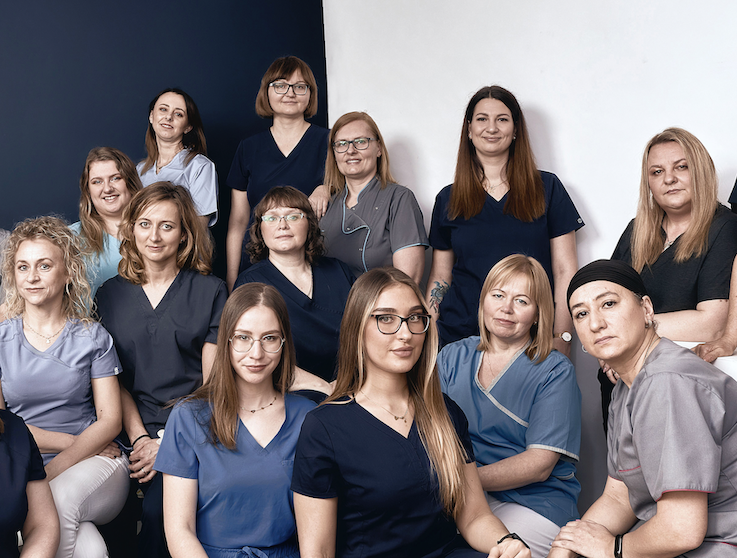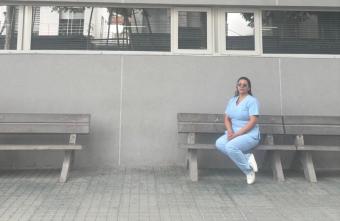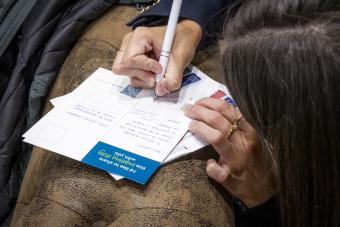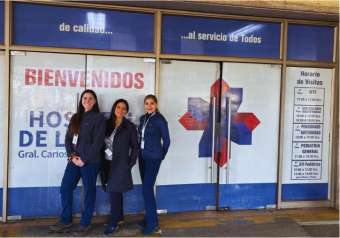MY NAME is Ewa Gadzińska. I have been a nurse at St. Łukasz Hospital in Bolesławiec since September 1989, and was appointed head nurse at the Stroke Prevention and Treatment Centre in Bolesławiec in 2018.
I have wanted to become a nurse for as long as I can remember. Before moving to Bolesławiec, our family lived in a small village in Lower Silesia where there was no health centre.
As a child I was often ill and the only effective treatment was intramuscular injections. My mother would take me on a bicycle several kilometers to the nearest health centre for an injection. It often rained, and I knew how much effort this was costing my mother.
That was why I decided to become a nurse; I thought learning to give injections would solve all my family’s health problems and they wouldn’t have to travel so far.
I took my first steps in nursing when a nurse at the health centre gave me a glass syringe and an old crooked needle for being very brave. From that moment my adventure began. Soon all my teddy bears were dripping with water. I remember how my mother took them outside to dry in the sun and I would check on them to see if “the patient” was ready.
After attending medical high school I continued my studies while working in surgical, orthopedic and pediatric surgery and oncology wards. I graduated first from the Medical University in Legnica and then from the Pomeranian Medical University in Szczecin, having obtained qualifications in the fields of anaesthesiology and intensive care. My learning continues and I am still improving my qualifications.
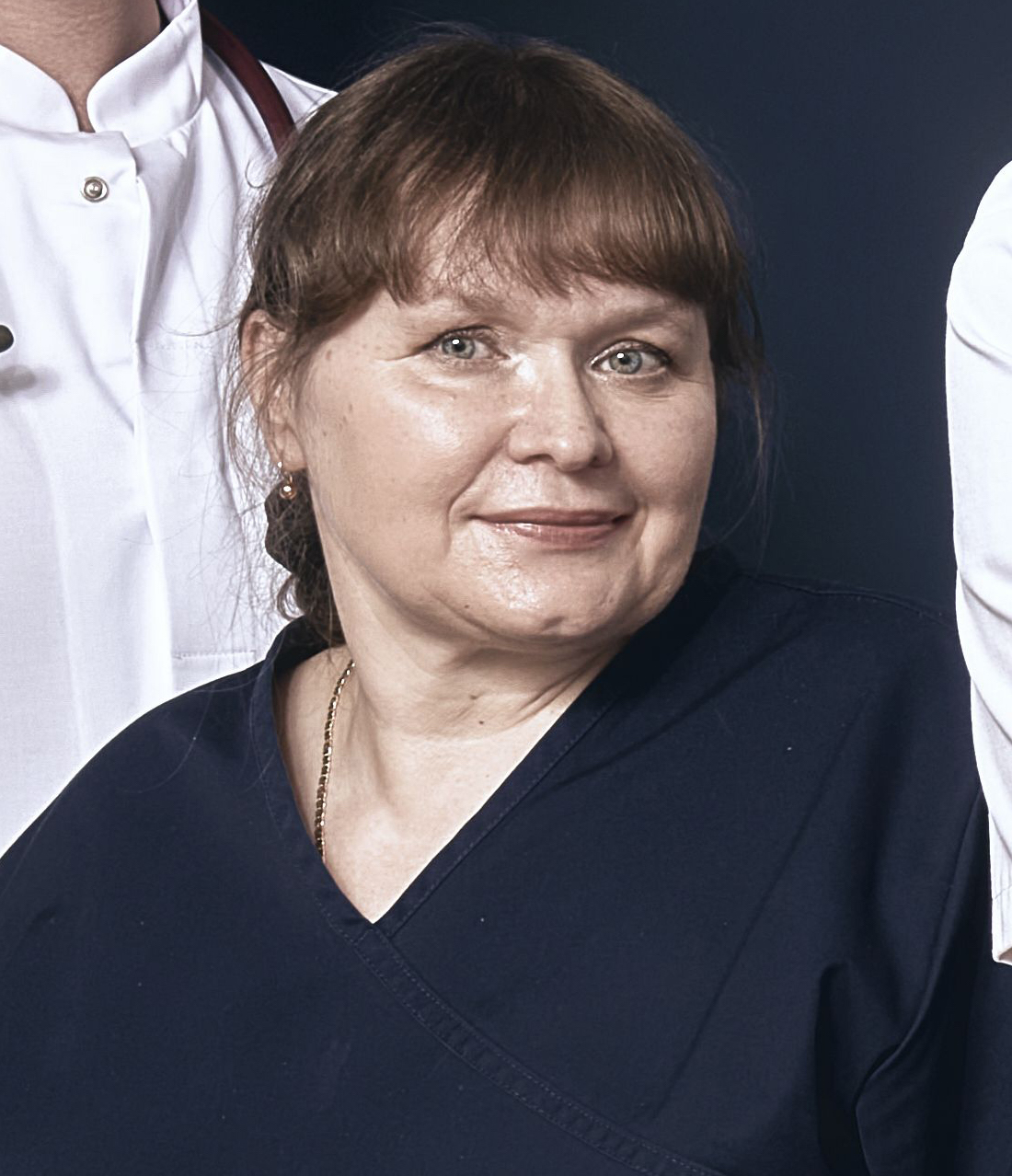
New challenges and hard work
The stroke unit at our hospital opened in April 2022. We had waited a long time for such a ward to be created. We knew it would be a lot of work and that it would require more and more dedication and responsibility, but we were ready for it.
In the stroke unit, every day brings new challenges and hard work. Most of the patients are bedridden and require comprehensive nursing care consisting of washing, feeding, changing position, and very often transporting the patient for diagnostic tests, often by bed, which requires a lot of physical strength from the staff.
Most often, medical carers [auxiliary staff] are involved in the transport of patients. They are an extension of nursing hands. They are all patient and understanding because neurological patients require more care, more control. Such a patient is sometimes tired of his illness and his health condition and does not always cooperate with the staff.
And this requires special personality traits, especially self-control, firmness and, to some extent, resistance to human suffering.
The beautiful sight of a person smiling
Since the establishment of the stroke unit, we have a number of new responsibilities, including participation in intravenous thrombolytic treatment in acute ischemic stroke. We are constantly ready – every day, every minute, every second – so that when we get the news that a patient with suspected stroke is on their way, we can reach the tomography laboratory as soon as possible.
We have a stroke bag which contains all the necessary medicines and equipment, and a second bag with additional equipment, which, contrary to appearances, is very heavy. When the stroke signal is received, there is sometimes a fraction of consternation: which way will be faster, the elevator or through the courtyard?
Then the nurse won’t even notice if she is not properly dressed for the weather conditions. Sometimes she runs in the pouring rain, or in light shoes up to her ankles in the snow, the bag bumping around her ankles, so heavy she can barely carry it, because every minute is important. And she knows that her reward will be the most beautiful sight of a person smiling at us because of us.
The way of the heart
Of course, it happens for various reasons that the patient does not go to the hospital on time and the stroke has a deep impact on their health. And here begins the fight of this patient, his family and the hard work of the whole team.
Long hours and days go by, and the patient does not always recover. But even in such moments, when the family, after losing someone close, comes to thank us for the care, it is because they know that until the last moment, the last breath, the patient had such care as if he were to get up tomorrow and go home.
That is why all nurses and medical carers working in neurology are unique people who have a huge heart, amazing layers of empathy and, despite a momentary doubt, never give up. That is why the smile of the patient who leaves our ward tells us that the only way to another person is the way of the heart.
Of course, this ward would not exist without the efforts of the hospital director, Mr Kamil Barczyk, and Dr Justyna Straszak-Trzeciak who fought against adversity every day to create such a ward. Sadness, tears but also joy are emotions that accompany us every day, and very often thanks to a smile and support, especially from Dr Justyna, we get through it all.
We have all been through very difficult times related to Covid; it has left a huge mark on each of us. We were locked in an uneven fight against the virus, and we were constantly paralysed by fear for our own lives and the lives of our loved ones. These were very painful experiences, but thanks to them we are stronger.
Wings on their shoulders
Behind every success there is a person, because everyone who works here is important and needed. Each person working in the ward is an individual, every person is special, but the common denominator is a huge heart and incredible empathy.
Natalka is a refuge – calm outside, and inside, two elements, water and fire. You can always rely on her; she is hardworking, conscientious.
Małgosia is warm, kind and calm whatever happens. She can come up with surprising solutions in a short time.
Ania is always polite, obliging and hardworking. She soothes all tensions with a smile.
Karolinka is extremely observant and can detect any mistakes in no time. The good of the patient comes first and she always fights for it.
Kornelka, the smiling sunshine of the ward, has the ability to enjoy the smallest things. The patient feels warm with her.
Natalka is guided by her own thoughts and draws the most accurate conclusions.
Ania has incredible ingenuity combined with diligence. She can find an original solution to any problem in an instant.
Patryk is the only man in our group, a nurse who is kind and polite, with a quick response when the patient’s life is in danger. He’s an example that a man can also do this job perfectly.
Justynka is polite, always cordial, kind and open to the needs of others.
Anna is independent, determined and conscientious. She always takes responsibility for her own actions.
Wioletta is caring and considerate, always open to the needs of the sick. She is still curious and interested in the nursing world.
Beatka is incredibly helpful and hardworking, with wings on her shoulders and an open heart. More than one storm has turned her life upside down, but still she is patiently waiting for rainbows.
Elwira is determined, self-confident, copes with all problems. Accurate observations without hesitation or doubts allow her to achieve her intended goal.
Terenia can always be relied on; she is hard-working and conscientiously performs all activities. Her words always brighten up every curved lip.
Marysia is cordial, empathetic and understanding, motivated only by noble motives.
Iwonka is determined, self-confident, always achieves her goals.
Monika is cordial, kind, selflessly open to the needs of others. She never closes her heart to another human being.
Agnieszka rarely shows her emotions outside, but always has a warm heart and open hands that help to lift broken wings.
Wioletta is incredibly kind, good-natured and cordial towards others. A wonderful person and always smiling despite many rains that wet her heart to the last thread.
Halinka has sparkles in her eyes and can bring a smile to the face that is tired of the disease.
Angellika is an amazing person for whom nothing is impossible to do. Always with a smile on her face, she does not spare words that bring comfort, she never closes her heart to another person.
Ania is very perceptive, she can see the smallest shortcomings and draw conclusions from it. She skilfully pursues her goal while being cordial and warm.
Angellika is sensitive to evil and harm of others, and full of tact and discretion. She never gets discouraged in the face of difficulties and knows perfectly well that every fight is a step forward.
We are successful thanks to our hard work and the support of our colleagues from other wards, from other hospitals – they bring a breath of new experience, a different perspective on problems, which we value and often use.
It is not always possible to separate my personal life from work. I would like only wonderful, happy days, only fast-healing patients, but if we ask ourselves why are we are doing all this, we may as well ask, “Which wing does a bird need to fly? Right or left?”
